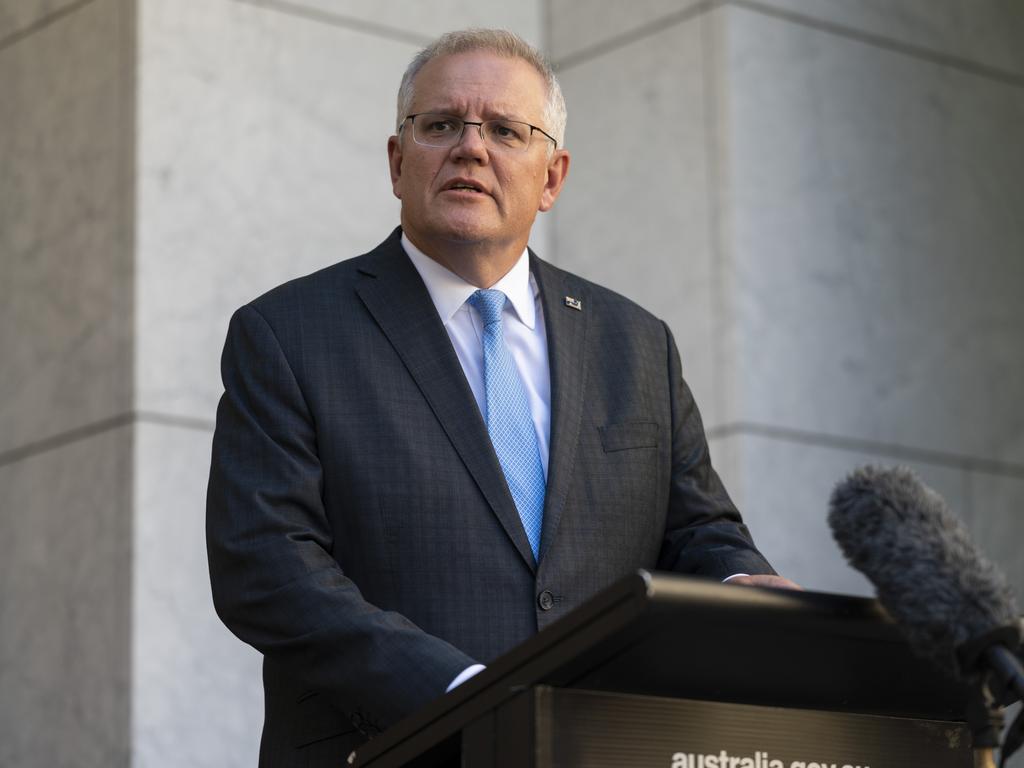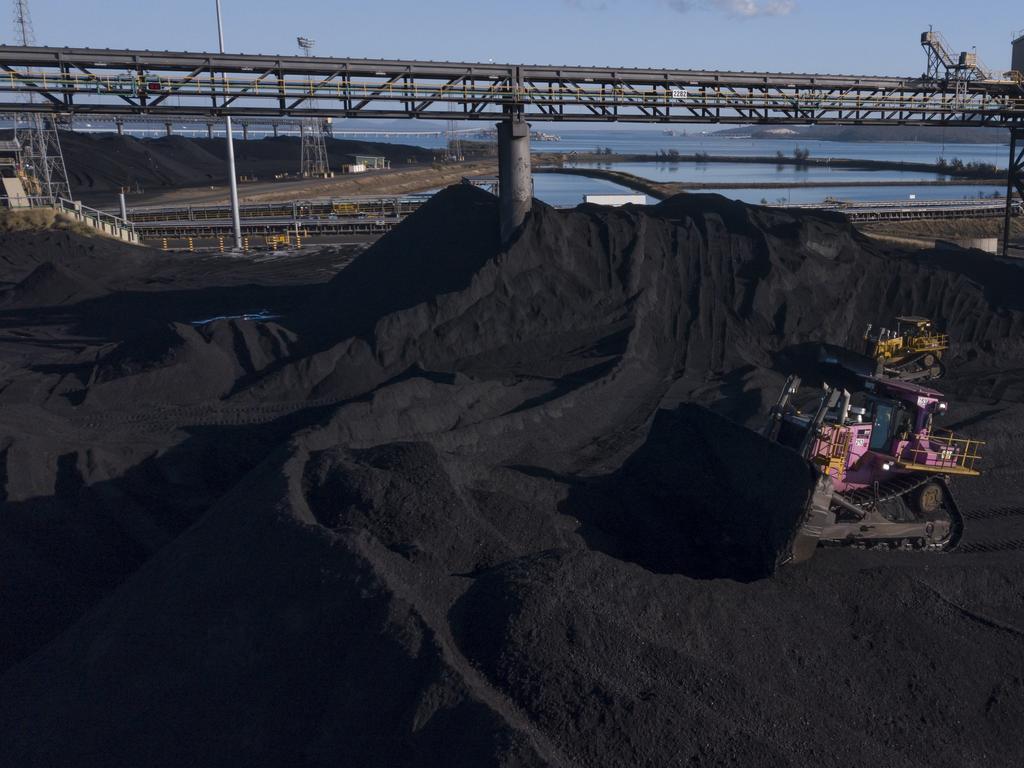
How else to explain the hype at Guardian Australia, the ABC and Nine’s metro newspapers about Prime Minister Scott Morrison’s approach to last Thursday’s Zoom climate change summit hosted by US President Joe Biden?
ABC’s Fran Kelly and the Nine papers’ environment editor Nick O’Malley have criticised Morrison for not wanting to sign on to net zero emissions by 2050 until his government can work out a path to get there. Some reporters give bouquets to countries that really have no chance of meeting their targets — India and China — and countries that talk big but remain behind Australia — the US and New Zealand.
Kelly on RN Breakfast on Thursday lost her journalistic detachment interviewing Energy Minister Angus Taylor. When she demanded to know why the government would not adopt more ambitious targets, Taylor told Kelly the point was Australia was achieving larger emissions reductions than most countries. He’s right.
The new Biden administration proposes a 50 to 52 per cent cut in 2005 emission levels by 2030 but its own Environmental Protection Agency says pre-pandemic 2019 emissions were down just 13 per cent on 2005. Australia’s emissions are down 19 per cent.
Morrison on Thursday stuck to his line about using technology to achieve emissions reductions. No doubt he will have to up his ambitions before the next global UN climate summit in Glasgow in November. But why should a nation with only 1.3 per cent of global emissions, that has the biggest reserves of high-quality coal and gas on the planet, destroy its own economic future while huge emitters refuse to do anything but talk?
Do the ABC and Guardian — which regularly push for more spending on welfare — understand coal, oil, gas extraction and LNG between them earn the nation $130bn to help pay for our imported goods, plus tens of billions in state royalties and federal taxes?
Why would the ABC’s four-part 7.30 climate opus last week have relied for economic commentary on the Australia Institute, an anti-business lobby group run by two former Greens? Or does no one among Aunty’s highly paid editorial managers know the background of Institute director Ben Oquist and deputy Ebony Bennett? They are both former long-term Greens staffers.
Many environment writers treat NZ PM Jacinda Ardern as a climate hero because her government set a net zero by 2050 standard in its Climate Law in November 2019. But an AAP fact check last October could not determine if Ardern’s government had cut emissions at all.
“Projections released in December 2019 show net greenhouse emissions were … to increase slightly between 2017 and 2019, while gross emissions were expected to remain roughly the same,” AAP said.
Another fact many reporters missed last week was Labor’s decision on Monday to offer more overt support for coal. Resources spokesperson Madeleine King told this newspaper’s Greg Brown that “Labor will not stand in the way of new mines and believes Australia will export coal beyond 2050”.
King rejected the push by former Coalition PM Malcolm Turnbull for a moratorium on new coal mines. Labor is determined not to repeat the mistakes that cost it support in coal seats at the 2019 election. But Turnbull and former Labor PM Kevin Rudd ignored all such inconvenient facts in a joint-bylined piece getting stuck into Morrison on Wednesday morning in Turnbull’s favourite Green journal, Guardian Australia. They claimed “the national consensus for climate action in Australia has also shifted markedly in recent years”. Labor’s new embrace of coal two days earlier was ignored.
Rudd and Turnbull won’t admit Australia is doing better than many other countries. Our population has been among the fastest rising in the world, so our per capita emissions are falling faster than most. We have one of the highest penetrations of renewables in the G20 — 27.7 per cent according to the Clean Energy Council’s own 2020 report. We have the world’s highest penetrations of rooftop solar. And we are ahead of schedule in our Paris commitment to reduce CO2 emissions by 26-28 per cent by 2030.
So how are the world’s big emitters doing? Journalists keep proclaiming China is committed to net zero by 2060 and India by 2050. The words of both countries are undermined by their actions.
Rudd and Turnbull were optimistic about China in the Guardian but Rudd wrote the exact opposite for the Washington Post last September, slamming China’s thirst for coal as “shortsighted and environmentally reckless”. He was right then.
Under its Paris commitments, China does not reach peak emissions until 2030. With 30 per cent of global emissions, Fortune magazine reported on March 29 that China burned 53 per cent of the world’s total thermal coal consumption last year. The environment website GreenBiz reported on April 15 that China was planning or already developing 247 gigawatts of new coal-fired power, six times Germany’s total coal-fired capacity.
India tells the rest of the world it is committed to renewables while telling its own media about possible increases in fossil fuel investment. The Hindustan Times on March 30 reported former Ambassador to the EU and China, now Indian climate negotiator Chandrashekhar Dasgupta, supported net zero for the developed world but believed India needs to stick to the principle of “common but differentiated responsibilities” of developed and developing countries. He said India needed to continue its reliance on coal.
The world’s No 3 emitter, India, relies on coal for 70 per cent of its power. Reuters reported on April 19 that an unreleased 28-page National Electricity Policy from February said: “While India is committed to add more capacity through non-fossil sources of generation, coal … may still be added … as it continues to be the cheapest source of generation.”
By Friday, Copenhagen Consensus director Bjorn Lomborg in The Daily Telegraph brought some sense to the week’s climate reporting. The Paris targets, even in the unlikely event they were met globally, would reduce global average temperature by the end of the century by just 0.19 degrees centigrade, he said.








Many of the media’s environment writers seem to believe what countries say about their emissions reduction plans is more important than what they actually do.